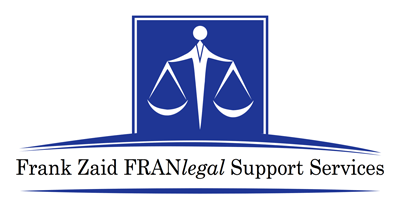Originally published in the Canadian Business Franchise magazine on March 27, 2014
Q: Why are mediation and arbitration important in the resolution of franchise disputes today?
A: My experience in alternative dispute resolution (ADR), through the mediation and arbitration of franchise disputes, has convinced me it is a natural and expanding resource for possible solutions to franchising problems. Indeed, more and more franchise disputes are likely to head to ADR in the future, for a number of external reasons.
For one thing, franchising has become big business in Canada. It is estimated there are nearly 100,000 franchise units across the country, directly representing more than 1.5 million jobs, accounting for one out of every five consumer dollars spent in Canada on goods and services and representing 5 per cent of the country’s gross domestic product (GDP).
Commensurate with the growth of franchising in the marketplace, franchise legislation has been enacted in six provinces: Alberta, British Columbia, Ontario, Prince Edward Island, New Brunswick and Manitoba. In Quebec, franchising is generally regulated under the province’s Civil Code, which considers franchise agreements legally binding ‘contracts of adhesion.’ All Canadian franchise legislation is founded on two major principles.
Disclosure
The first principle is that a franchisor must provide a disclosure document—which outlines in considerable detail the franchise being offered—to the prospective franchisee, unless an exemption is available.
Specifically, the disclosure document must be provided at least 14 days before the prospective franchisee (a) signs any agreement relating to the franchise or (b) pays any consideration to the franchisor or the franchisor’s associate relating to the franchise.
If the disclosure document is not provided—or if it is provided, but contains deficiencies—within that period, then the franchisee will have the statutory right to rescind the franchise agreement. This right will hold for two years in the case of no disclosure or 60 days in the case of deficient disclosure, starting from the date the franchisee signed the agreement.
The statutory right of rescission creates a highly punitive and costly remedy in favour of the franchisee. If the agreement is rescinded pursuant to this right, the franchisor is required to do the following:
• Refund to the franchisee any money received from or on behalf of the franchisee, other than money for inventory, supplies or equipment.
• Purchase from the franchisee any inventory, supplies and equipment that the franchisee had purchased pursuant to the franchise agreement at a price equal to the purchase price paid by the franchisee.
• Compensate the franchisee, without duplication, for any losses incurred in acquiring, setting up and operating the franchise. Given the cost of establishing a franchise in some of the larger sectors, such as hotels, car rentals, automotive dealerships, full-scale restaurants and grocery stores, multiplied by the number of franchisees operating within a particular system, it is clear the exposure of a franchisor to rescission claims could easily run into the hundreds of millions of dollars.
Fair dealing
The second principle of all franchise legislation in Canada is the imposition on each party to the franchise agreement of a statutory duty of fair dealing in the performance and enforcement of the agreement. This duty includes the obligation to act in good faith and in accordance with reasonable commercial standards.
Breach of the duty of fair dealing, coupled with an alleged breach of an obligation or the assertion of a right under the franchise agreement, would expose a franchisor to a significant claim for breach of contract. And if the alleged breach is in respect of a matter common to all or substantially all franchisees within a given system, then the aggregate potential damages claim against a franchisor could, again, run into the hundreds of millions of dollars.
The growth of disputes
Franchise relationships are governed principally by franchise agreements, which are complex documents reflecting the rights granted to the franchisee, the obligations of the franchisee to operate a business in accordance with the franchise system and the rights and obligations of the parties to each other in respect of the franchisor’s administration of the franchise system and the franchisee’s standards of operation of the franchised business.
Many franchise disputes have been heard by Canadian courts, usually on an individual franchisee-franchisor basis. As the number of franchisees within a given franchise system grows, however, so too does the number of disputes revolving around a common issue to all or virtually all of the franchisees within that system, both past and present.
In recent years, some large group actions have been brought for damages allegedly caused to franchisees by their franchisor, in respect of contractual breaches or misrepresentations. With the enactment of class action legislation in most provinces, franchise disputes common to a distinguishable group of all or substantially all the franchisees within a specific system have become the subject matter of very large and significant class actions. Many well-known franchisors, including Tim Hortons, Shoppers Drug Mart, Midas, Pet Valu, Quiznos, Bulk Barn, General Motors and Suncor have been involved in franchise class actions.
Given all of this activity, one may well question why more franchise disputes are not resolved through mediation, arbitration and other alternative methods, rather than going to court.
ADR initiatives
Franchise agreements have been characterized by the courts as contracts of adhesion prepared by franchisors with little or no ability for franchisees to negotiate terms, often between a corporation with significant assets and resources and an individual entrepreneur with very limited assets and resources. Litigation between these parties has the potential to cause substantial damage to the reputation of the franchisor and significant exposure to huge damage awards, but also possible ruination and bankruptcy for the franchisee.
As a result, the franchise legal and business community has seen many initiatives to direct franchise disputes into ADR at an early stage.
In 2005, for example, after nearly five years of consultative activity by a specialized committee of lawyers, government officials and franchise industry participants (of which this author was co-chair), the Uniform Law Conference of Canada (ULCC) released a report containing a model ‘uniform franchises act,’ disclosure regulation and mediation regulation. The latter included detailed provisions allowing either party to a franchise agreement to require any dispute between them to be submitted to mediation. So far, among the provinces that have adopted franchise legislation since the release of the ULCC report, New Brunswick and British Columbia have adopted mediation processes similar to those included in the report’s model legislation.
Although Ontario’s franchise legislation—the Arthur Wishart (Franchise Disclosure) Act, which was enacted in 2000—does not include a mediation process, the Ontario Rules of Civil Procedure include a program of mandatory mediation in some major urban areas of the province.Certain actions are exempted from this procedure, including those placed on the Commercial List in the Toronto region and those certified as class proceedings under Ontario’s Class Proceedings Act of 2002; but for all other actions in Ontario, the Rules of Procedure stipulate a mediation session shall take place within 180 days after the first defence has been filed, unless the court orders otherwise.
Matters that may be placed on the Commercial List include applications, motions and actions that involve, among other matters, “suitable complex cases under the Arthur Wishart Act.” While mandatory mediation does not apply to cases on the Commercial List, the Practice Direction establishing the Commercial List states, “resort to the techniques of alternative dispute resolution (ADR), where appropriate, is recognized and encouraged as an effective aid in the disposition of issues and matters on the Commercial List.”
Further, “it is the duty of the case management judge and the obligation of counsel to explore methods to resolve the contested issues between the parties, including the resort to ADR, at the case conferences and on whatever other occasions it may be fitting to do so.”
In addition, “at any time, particularly on consent of the parties, the case management judge may refer any issue for ADR, as appears appropriate.” At that point, once a matter—or any issue with the matter—has been referred to ADR, counsel will be required to “report to the case management judge at regular intervals as to the progress of the ADR proceedings. The timing of such report shall be agreed upon by counsel and the case management judge.”
The Canadian Franchise Association’s Code of Ethics includes the following requirement: “A franchisor and its franchisees should make reasonable efforts to resolve complaints, grievances and disputes with each other through fair and reasonable direct communication, and where reasonably appropriate under the circumstances, mediation or other alternate dispute resolution mechanisms.”
As a result of these rules and the recognition that complex cases under the Arthur Wishart Act are appropriate subject matter for Commercial List applications, motions and actions, there has been a recognized and encouraged initiative to attempt to resolve such disputes in Ontario through mediation or arbitration prior to court proceedings.
Promoting mediation
There are signs present in all provincial franchise legislation that highlight government initiatives to promote mediation of franchise disputes.
Regulations under most provincial franchise legislation dealing with the content of disclosure documents, by way of example, provide similar requirements to Ontario’s legislation that “if an internal or external mediation or other ADR process is used by a franchisor in disputes with a franchisee, the disclosure document must include a description of the mediation or other ADR process and the circumstances when the process may be invoked.”
In addition, provincialdisclosure documents require the inclusion of a statement similar to that in Ontario “Mediation is a voluntary process to resolve disputes with the assistance of an independent third party. Any party may propose mediation or other dispute resolution process in regard to a dispute under the franchise agreement and the process may be used to resolve the dispute if agreed to by all parties.”
Further, under all provincial franchise legislation, a disclosure document must contain statements, including descriptions of details, regarding the following circumstances:
• If the franchisor or a director, general partner or office of the franchisor has ever been convicted of fraud, unfair or deceptive business practices or a violation of a law that regulates franchises or business.
• If there is a charge pending against the person involving such a matter.
• If the person has been subject to an administrative order or penalty imposed under a law of any jurisdiction regulating franchises or business.
• If the person is the subject of any pending administration actions to be heard under such a law.
• If the person has been found liable in a civil action of misrepresentation, unfair or deceptive business practices or violating a law that regulates franchises or businesses, including a failure to provide proper disclosure to a franchisee.
• If a civil action involving such allegations is pending against the franchisee.
The provincial regulations do not include any requirement, however, to disclose if a dispute has been submitted to ADR, nor the results or settlement of any such dispute by ADR.
Franchisors would prefer not to have descriptions of these matters—especially civil suits—included in their franchise disclosure documents, because of the negative implications for prospective franchisees and, in certain cases, because such actions may disentitle the franchisor from relying on an exemption from the requirement to disclose financial statements.
So, if a franchise dispute is submitted to ADR and resolved without further court process, then the resolution or decision will be confidential and private to the parties and likely not subject to inclusion in a franchise disclosure document, unless considered to constitute a “material fact” as defined in the legislation.
A growing trend
In conclusion, all aspects of franchising today point to the need for—and desirability of—submitting disputes to ADR and, in particular, to mediation whenever possible. Legislators, judicial administrators and industry associations are all encouraging this direction, as franchising continues to grow and occupy a major position in Canada’s economy.
Further, with continued print and social media interest in reporting on franchise disputes before the courts, particularly those involving well-known brands, it is almost a foregone conclusion more franchise disputes will proceed to ADR in the future.


